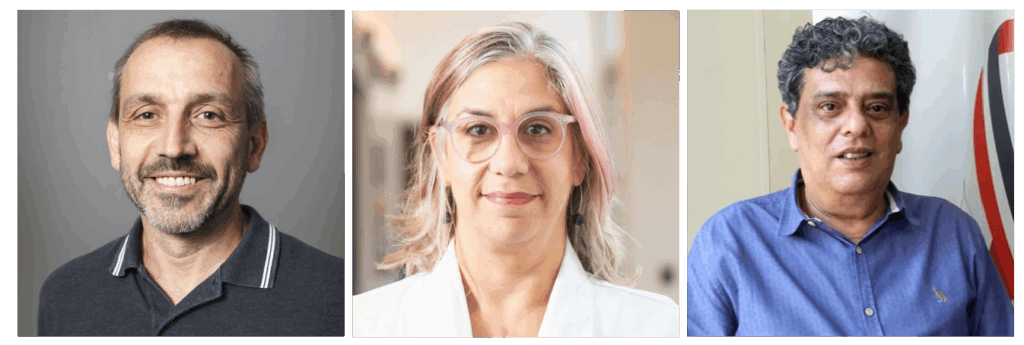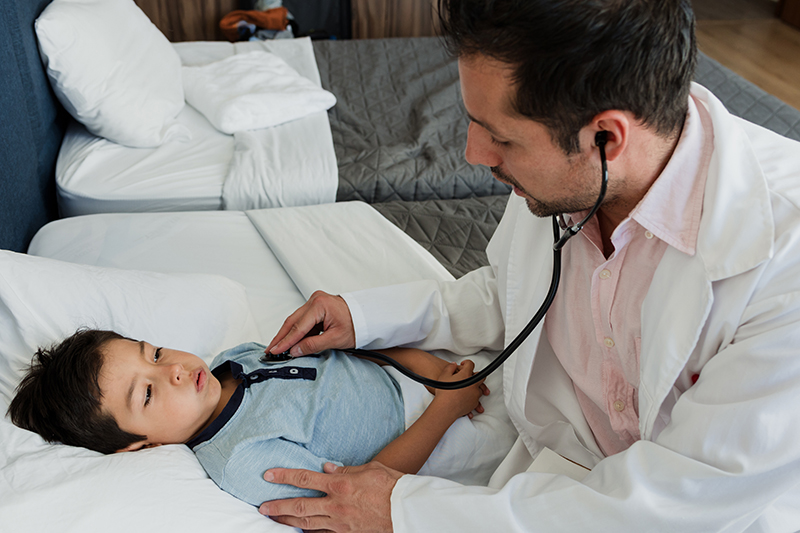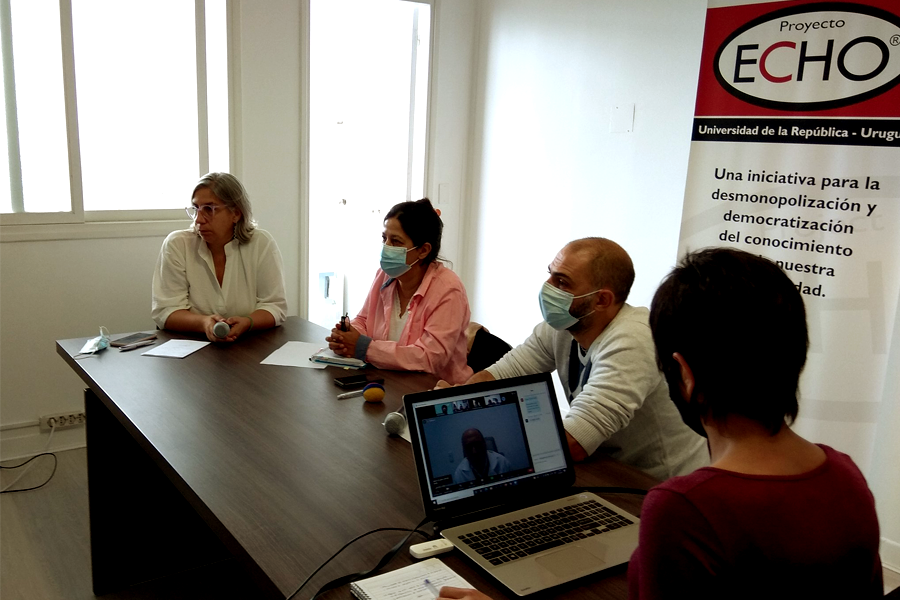In Latin America, HIV remains a leading cause of preventable deaths. Many people are diagnosed late or hospitalized with advanced stages of the disease after missed opportunities for earlier care.
“Too many people living with HIV are seen multiple times by the health system without being diagnosed or treated effectively,” says Dr. Omar Sued, HIV advisor with the Pan American Health Organization (PAHO) for Latin America and the Caribbean.
In response, two global health organizations—PAHO and Unitaid—have partnered with Project ECHO to bridge this gap. “ECHO identifies system-wide challenges and offers a platform to share practical solutions,” adds Dr. Sued.

Left to right: Dr. Omar Sued of PAHO; Dr. Zaida Arteta of Uruguay HIV ECHO; and Dr. Robinson Fernandes de Camargo of São Paulo HIV ECHO.
Using the ECHO Model, providers in 28 countries are learning to diagnose HIV earlier and improve care for advanced cases with the Continuing Education in Advanced HIV Disease ECHO series.

In addition to monthly ECHO sessions that engage broad participation across Latin America, PAHO is developing ECHO communities of practice for specific focus areas, such as HIV in the pediatric population for experts from national programs. Photo credit: Adobe Stock
Uruguay Expands Access, Builds Confidence in HIV Care
In Bella Unión, Uruguay, a remote town near the country’s northern border, people living with HIV once had to travel nearly 400 miles to the capital, Montevideo, for care. That changed when a local doctor joined ECHO.
With support from a national network* launched in 2014, the physician began treating patients locally. This marked a turning point for care in the region, says Dr. Zaida Arteta, an infectious disease specialist and professor at the Universidad de la República.
“Now, patients can be treated closer to home,” says Dr. Arteta, who co-leads Uruguay’s HIV ECHO program. Through ECHO, clinicians present complex cases and receive immediate, practical guidance. “The most important difference with ECHO is that it is based on real cases,” says Dr. Arteta, adding: “Providers return to their clinics with solutions they can apply right away.”
The ECHO program has strengthened collaboration—between infectious disease specialists, family doctors and public health professionals—and, ultimately, improved patient care. Participants greatly improved their ability to correctly identify next steps for treatment, up to 89% from 44%**.
Brazil: Faster Treatment, Better Outcomes
Momentum is also growing in Brazil. In 2018, São Paulo launched one of the region’s most ambitious HIV ECHO initiatives, with eight ECHO programs focused on HIV and sexually transmitted infections. In a city of more than 12 million people, health workers often manage HIV alongside homelessness, mental illness, substance use, or tuberculosis. And, it worked: patients now receive treatment in just 13 days, down from 180 days***.

Above: In São Paulo’s Bairro da Liberdade—one of the world’s largest and most complex urban zones—ECHO is helping bridge HIV care across diverse communities. Photo Credit: Adobe Stock
“For health workers, treating someone who is unhoused is complex,” says Maria Cristina Abbate, who participates in the city’s ECHO programs. “These patients often face overlapping challenges — including mental illness, substance use and gaps in access to care — which require coordination across health, social and mental health services. ECHO helps teams navigate that.”
That collaboration is creating more equitable care. “Whether a patient is in the city center or on the outskirts, they now receive the same standard of care,” says Dr. Robinson Fernandes de Camargo, who leads ECHO’s initiatives for HIV at São Paulo’s municipal health department. “Through ECHO, we’ve built a connected care network that supports professionals at every level. This has made our system stronger, more responsive, and ultimately, more inclusive.”
Regionally, PAHO is taking the next step with ECHO, by building “communities of practice” across Latin America in specific focus areas, such as HIV in pediatrics to ensure specialized, and localized, knowledge is co-created beyond borders.
By building trusted networks and supporting local leadership, Project ECHO is helping countries across Latin America shift from isolated challenges to shared solutions in HIV care.
Register for the Continuing Education in Advanced HIV Disease ECHO program, or email the program team to learn more.
*National Administration of Public Health Services (ASSE) and academic institutions launched the program: clinical management of HIV and other sexually transmitted infections at Project ECHO Uruguay.
**ECHO Uruguay Advanced HIV Clinic Evaluation Report (2021).
***Comparing time-to-treat data from 2016 to 2022, provided by the Municipal Secretary of Health.
Featured image: The HIV ECHO program in Uruguay has helped build the country’s first treatment guidelines for opportunistic infections, through the collaboration between specialists and frontline providers. Photo provided by ECHO Uruguay.

